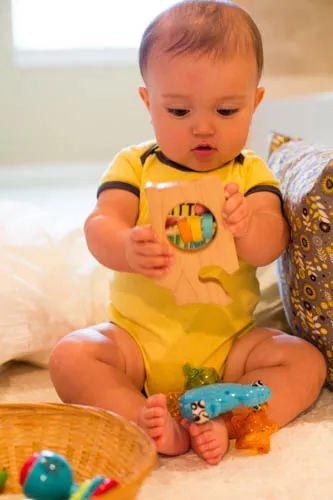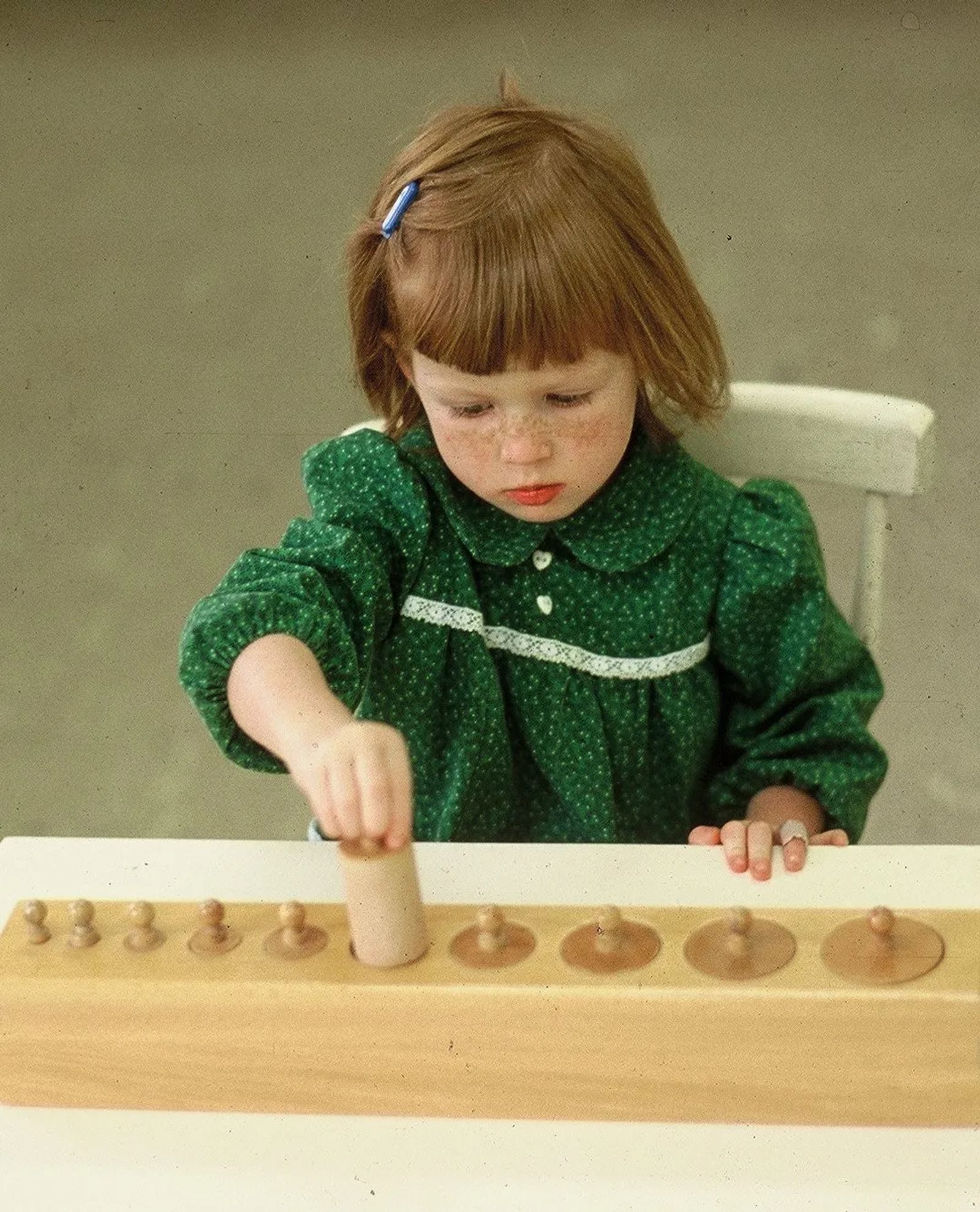Early Childhood Development - Observing the Absorbent Mind
 I could sit for hours watching my son (7 months), as he explores the world with curiosity and focus that Montessorians call the “Unconscious Absorbent Mind” (Age 0-3). It’s as though I can see the wheels turning in his head as he stares with a fixed soft gaze and mouth gaping, while he explores an object with his eyes, hands, mouth, and even sometimes his feet. Right now his latest passion is hearing things rattle while he shakes them in his hands. He holds an object, shakes it in his right hand, and then shifts it with slow and staggered coordination to his left. He shakes it harder. Then he raises it up, down, and all around.
I could sit for hours watching my son (7 months), as he explores the world with curiosity and focus that Montessorians call the “Unconscious Absorbent Mind” (Age 0-3). It’s as though I can see the wheels turning in his head as he stares with a fixed soft gaze and mouth gaping, while he explores an object with his eyes, hands, mouth, and even sometimes his feet. Right now his latest passion is hearing things rattle while he shakes them in his hands. He holds an object, shakes it in his right hand, and then shifts it with slow and staggered coordination to his left. He shakes it harder. Then he raises it up, down, and all around.

He is demonstrating what Maria Montessori called a “Sensitive Period”. He is in a period of development where his mind and body are craving the interaction with toys/items that give him the feedback of sound as he moves them. For this reason, I strive to find toys that he can a) hold in his grip, b) fit in his mouth without being a choking hazard, c) have different shapes and textures, and d) make different noises as they shake: all these in order to stimulate his brain differently and meet the need of this one sensitive period! I first noticed his desire for this type of play as I watched him seek out a maraca in his toy shelf again and again. I then made some DIY “shakers” with hotel shampoo bottles filled with various materials (rice, dried pasta, and beans).
"Montessori said it best when she said, The essence of a sensitive period is a Drama of Love between the child and its environment” -Mary Ellen Maunz, Founder of Age of Montessori.
It means his inner interest is being met by an environment that has items to quench his mind/body’s particular “thirst” (if you will). For this reason, parents, family members, and teachers have a unique responsibility to the young child. We must keenly observe the young child to notice his current sensitive period and provide an environment rich with opportunities to repeat the desired learning activity over and over again.
Montessori said she first noticed the essence of the sensitive periods when a 4-year girl repeated the cylinder block activity 42 times in succession!
What an amazing way to learn about something. Repetition is powerful stuff. Montessori was the first to really identify common sensitive periods, and neurological research in the past few years has begun to scientifically substantiate them.
What sensitive period are you observing in your child, and are you doing everything you can to support your child with an enriching environment? Want to learn more? Parents can enroll in our 4-week Child Development Course.
























